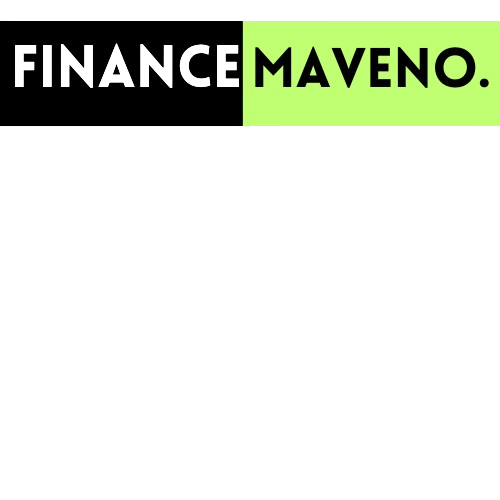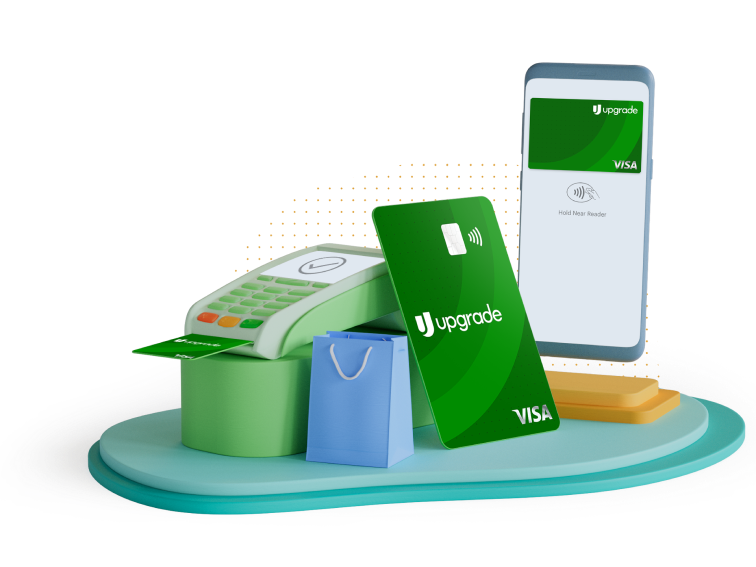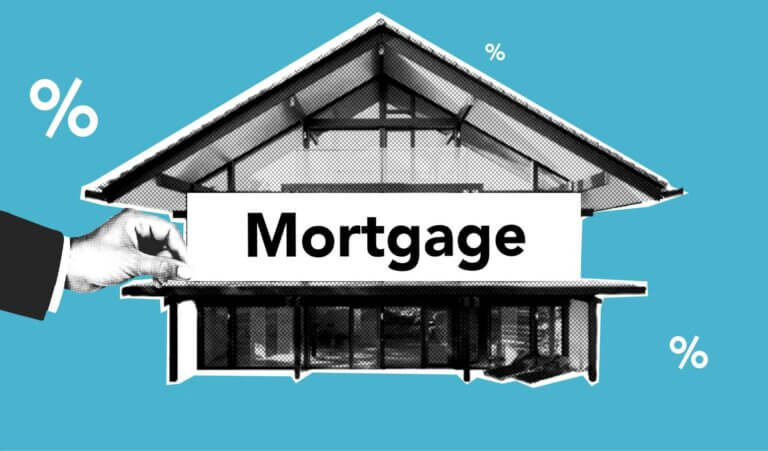SBA Loans and Grants – A Guide To Funding Potential
Intro
This guide will provide a comprehensive understanding of SBA loans and grants, the processes for application,…
…and tips for effective management, aiming to empower you to harness these resources for your business’s success.
Small businesses are crucial to the American economy, contributing significantly to job creation and innovation.
However, acquiring funding to start or expand a business often feels daunting.
Financial instability is a leading cause of small business failures, with almost half of these ventures closing within the first five years due to monetary issues.
The Small Business Administration (SBA) plays a pivotal role in supporting these enterprises through various financial tools, including loans and grants.

GOKAPITAL SBA LOANS
GROW YOUR BUSINESS AFFORDABLY
Loan Amounts: Up to $10,000,000
The best and most affordable way to obtain financing for your small business!
KEY TAKEAWAYS –
- Diverse Funding Options: SBA loans offer various programs like the 7(a), CDC/504, and Microloan programs, each tailored to different business needs, while SBA grants provide funds for specific projects and do not require repayment.
- Application Process: Securing an SBA loan involves a detailed application process including documentation of your business plan, financials, and eligibility criteria, while SBA grants are generally awarded through competitive programs and are not directly applied for.
- Eligibility and Requirements: SBA loans have specific requirements such as a solid business plan, good credit, and the ability to repay. SBA grants often have specific project or program criteria and are highly competitive.
- Impact on Startups: SBA loans can be an excellent option for startups needing capital for growth, but they require thorough preparation. SBA grants are less commonly available for startups and are generally aimed at specific initiatives or established projects.

Understanding SBA Loans and Grants
Definition and Purpose
SBA Loans: These loans are backed by the U.S. Small Business Administration but are issued by participating lenders, such as banks and credit unions.
They offer advantageous terms, including lower interest rates and longer repayment periods.
The SBA guarantees a portion of the loan, which reduces the lender’s risk and facilitates easier qualification for small businesses.
SBA Grants: Grants are financial awards that do not require repayment.
They are intended to support specific business needs, such as innovation or community development.
Unlike loans, grants are not a debt obligation but are often aimed at particular projects or groups.
Key Differences
Loans vs. Grants: The fundamental distinction between SBA loans and grants is repayment.
Loans require repayment with interest, while grants are essentially non-repayable financial assistance.
Apdditionally, grants often have stricter criteria and are designated for specific purposes, whereas loans offer broader usage.
When to Choose: If your business requires funding for general operations or expansion, SBA loans may be more suitable.
Conversely, if you have a specialized project, such as research or development,…
…or if you belong to a targeted demographic, grants might be more appropriate.

GOKAPITAL BUSINESS LOANS
BUSINESS
LENDING MADE SIMPLE!
Secure online application only takes minutes.
Types of SBA Loans
7(a) Loan Program
Overview: The SBA 7(a) loan program is the most widely utilized SBA loan.
It provides funding for various purposes, including working capital, equipment purchases, and real estate.
Eligibility: To qualify, businesses must be for-profit, located in the U.S., and demonstrate reasonable equity and cash flow.
A strong credit history and personal guarantees from business owners are also required.
Typical Uses: Common applications include buying inventory, acquiring equipment, purchasing real estate, and covering operational expenses.
Advantages and Disadvantages:
- Advantages: Offers flexible use of funds, competitive interest rates, and extended repayment terms.
- Disadvantages: Requires substantial documentation and can involve longer approval processes.
CDC/504 Loan Program
Overview: The CDC/504 loan program is tailored for acquiring major fixed assets, such as real estate or large machinery.
This program involves collaboration between a bank or lender and a Certified Development Company (CDC).
Eligibility: Businesses must be for-profit, with a net worth below $15 million and annual net income less than $5 million after taxes.
Typical Uses: Ideal for purchasing land, buildings, or equipment.
Advantages and Disadvantages:
- Advantages: Features low down payments and long-term financing options.
- Disadvantages: The application process can be complex due to the involvement of multiple parties, and funds are restricted to fixed asset purchases.
Microloan Program
Overview: The Microloan program offers smaller loans through nonprofit community lenders, making it accessible to new or smaller businesses.
Eligibility: Small businesses and nonprofits are eligible, particularly those that may not meet the criteria for larger SBA loans.
Typical Uses: Suitable for working capital, inventory, and equipment.
Advantages and Disadvantages:
- Advantages: Easier qualification criteria and lower loan amounts.
- Disadvantages: Limited loan sizes and potentially higher interest rates.
Disaster Loans
Overview: SBA disaster loans assist businesses affected by natural disasters, providing funds to repair or replace damaged property and equipment.
Eligibility: Requires that the business is located in a designated disaster area and that damage is directly related to the disaster.
Application Process: Involves detailed documentation of damage and financial losses.
Advantages and Disadvantages:
- Advantages: Provides low-interest rates and extended repayment terms.
- Disadvantages: Limited to expenses directly related to disaster recovery and may involve a lengthy application process.
GoKapital – Your Premier Partner for SBA Loans
When seeking SBA loans, GoKapital emerges as a premier choice for businesses aiming to secure funding with efficiency and expertise.
Specializing exclusively in SBA loans, GoKapital distinguishes itself through a comprehensive understanding,…
…of SBA financing programs and a commitment to delivering exceptional service.
Their extensive experience in the field enables them to guide businesses through every step of the loan process.
Thus ensuring that clients not only navigate the complexities of SBA loan applications but also optimize their chances of approval.
GoKapital’s dedicated team offers personalized support tailored to the unique needs of each business.
By leveraging their in-depth knowledge of SBA loan programs, they provide targeted solutions that align with your specific financial goals.
This focused approach, combined with their streamlined application process,…
…positions GoKapital as an ideal partner for businesses seeking reliable and efficient SBA loan solutions.
For those in pursuit of SBA loans, GoKapital’s specialized expertise and commitment to customer success,…
…make them a standout choice in the competitive landscape of business financing.
Apply here to access a GoKapital SBA loan.
Types of SBA Grants
SBA Grant Programs
Overview: SBA grants are awarded for specific purposes, such as research and development or support for underserved communities.
They are less common than loans but can significantly benefit targeted projects.
Eligibility: Varies by program and often requires alignment with specific SBA goals or project criteria.
Application Process: Typically involves submitting a proposal, project plans, and sometimes matching funds.
Specialized Grants
Overview: These grants focus on supporting specific groups, including veterans, minorities, or women-owned businesses.
They aim to enhance diversity and inclusion within the business sector.
Eligibility: Generally requires that the business owner belongs to the targeted demographic group.
Application Tips: Emphasize how the grant will help advance the business goals of the targeted group.
Research and Development Grants
Overview: R&D grants are aimed at fostering innovation and technological advancement.
They are available to businesses engaged in groundbreaking research or new product development.
Eligibility: Requires a detailed project proposal demonstrating potential for innovation or significant technological impact.
Application Process: Involves comprehensive project proposals and potentially a rigorous review process.
Applying for SBA Loans
Preparation and Documentation
Required Documents:
- Business plan
- Personal and business credit reports
- Tax returns (both personal and business)
- Financial statements (including profit and loss statements and balance sheets)
- Business licenses and registrations
Tips for Preparation:
- Ensure financial documents are accurate and up-to-date.
- Develop a detailed business plan that outlines your business objectives, strategies, and financial projections.
Application Process
Step-by-Step Guide:
- Research and Select a Lender: Choose a lender who participates in SBA loan programs.
- Complete the Application: Fill out the SBA loan application and submit all required documentation.
- Lender Review: The lender evaluates your application and may request additional information.
- SBA Guarantee: The lender submits the application to the SBA for guarantee approval.
- Loan Closing: Upon approval, finalize the loan agreement and disbursement terms.
Common Pitfalls:
- Incomplete or inaccurate documentation.
- Misjudging the time required for the approval process.
Approval and Disbursement
What to Expect:
- Approval: Involves a thorough review by both the lender and the SBA.
- Disbursement: Funds are typically released in stages based on the loan agreement.
Timeline: The process can span several weeks to months, influenced by the application’s complexity and the lender’s processing time.
Applying for SBA Grants
Finding the Right Grant
Resources and Tools:
- Grants.gov: A primary resource for federal grant opportunities.
- SBA Website: Lists specific SBA grants and funding programs.
- Local Business Development Centers: Provide information on regional and local grant opportunities.
Matching Business Needs: Ensure that the grant aligns with your business objectives and project goals.
Grant Proposal Writing
Key Elements:
- Executive Summary: A brief overview of the project.
- Project Description: Detailed information on the project, including goals, methodology, and expected outcomes.
- Budget: A comprehensive budget detailing how the grant funds will be allocated.
Tips and Best Practices:
- Follow Instructions: Adhere strictly to grant application guidelines.
- Provide Evidence: Use data and research to strengthen your proposal.
Compliance and Reporting
Reporting Requirements:
- Progress Reports: Regular updates on project progress and financial status.
- Final Report: A detailed summary of project outcomes and fund utilization.
Ensuring Compliance: Comply with all grant conditions and keep accurate records of fund usage.
Managing SBA Funding
Effective Use of Funds
Strategies:
- Create a Budget: Develop a detailed budget to ensure effective allocation of funds.
- Monitor Spending: Track expenditures to ensure funds are used as planned.
Examples of Successful Allocation:
- Investing in new equipment to enhance production capabilities.
- Utilizing grant funds for targeted marketing efforts to reach new markets.
Repayment and Financial Management
Repayment Plans:
- Structured Payments: Adhere to the agreed repayment schedule.
- Early Repayment: Consider early repayment options to reduce overall interest costs if financially feasible.
Financial Management Tips:
- Maintain Cash Flow: Regularly monitor cash flow to prevent financial issues.
- Consult a Financial Advisor: Seek professional advice for managing loan repayments and overall business finances effectively.
Monitoring and Adjusting
Tracking Progress:
- Regular Reviews: Conduct periodic financial and project performance reviews.
- Adjust Strategies: Make adjustments based on performance data and market conditions.
Handling Challenges:
- Proactive Problem-Solving: Address issues promptly to minimize impact.
- Seek Support: Utilize SBA resources and consult financial advisors for guidance.
Case Studies and Success Stories
Real-Life Examples
1: A manufacturing company utilized an SBA 7(a) loan to acquire new machinery, which led to a 30% increase in production capacity and a 20% boost in sales.
2: A tech startup secured an SBA grant to develop innovative software, resulting in a successful product launch and significant market penetration.
Case Study 3: A minority-owned retail business received an SBA microloan to expand its inventory and streamline operations,…
…leading to improved customer satisfaction and a 25% revenue increase.
Wrapping Things Up
In conclusion, SBA loans and grants offer invaluable resources for small businesses looking to grow and thrive.
Understanding and leveraging SBA loans and grants can be transformative for your small business.
By understanding the different types of funding available, the application processes, and eligibility requirements,…
…you can better position your business to take advantage of these opportunities.
Whether you’re seeking capital to start a new venture or to expand an existing one,…
…SBA loans and grants can provide the financial support needed to achieve your goals.
With careful planning and attention to detail, you can leverage these programs,…
…to drive your business forward and realize your entrepreneurial aspirations.
Frequently Asked Questions About SBA Loans and Grants
What are SBA loans and grants?
SBA loans are financial products backed by the Small Business Administration (SBA) to help small businesses access funding with favorable terms.
The SBA guarantees a portion of these loans, which reduces the risk for lenders.
SBA grants, on the other hand, are funds awarded by the SBA to support specific projects or business needs, and they do not require repayment.
How do I apply for an SBA loan?
To apply for an SBA loan go here, or follow these steps:
- Determine Eligibility: Ensure your business meets SBA criteria, such as size standards and operating in the U.S.
- Prepare Documentation: Gather necessary documents, including your business plan, financial statements, and personal background information.
- Find a Lender: Work with an SBA-approved lender who will process your application.
- Submit Application: Complete and submit the loan application along with the required documentation.
What types of SBA loans are available?
The SBA offers several types of loans, including:
- 7(a) Loan Program: General-purpose loans with flexible terms.
- CDC/504 Loan Program: Loans for purchasing fixed assets like real estate or equipment.
- Microloan Program: Smaller loans for startups and small businesses.
- Disaster Loans: Loans for businesses affected by natural disasters.
How can I get an SBA grant?
Unlike loans, SBA grants are not typically applied for directly. Instead, they are awarded through specific programs and initiatives.
Check the SBA’s website and other government resources for grant opportunities and application guidelines.
Be aware that grants are highly competitive and often have specific eligibility criteria.
What is the difference between an SBA loan and a grant?
The primary difference is that SBA loans must be repaid with interest, while grants do not require repayment.
Loans are generally used for a wide range of business needs, whereas grants are typically awarded for specific purposes or projects.
Can I use an SBA loan for startup costs?
Yes, SBA loans can be used for startup costs, but they require a detailed business plan and personal financial information to assess your ability to repay the loan.
Startups often face stricter requirements compared to established businesses.
What are the typical requirements for SBA loans?
Common requirements for SBA loans include:
- A strong business plan
- Good credit history
- Collateral or a personal guarantee
- Proof of ability to repay the loan
- Compliance with SBA size standards and industry requirements
How long does it take to get approved for an SBA loan?
The approval process for SBA loans can vary but typically takes between 30 to 90 days.
This timeline depends on the complexity of your application, the type of loan, and the lender’s processing time.
Are SBA loans and grants available for non-profits?
SBA loans are generally available to for-profit businesses.
Non-profits are typically not eligible for SBA loans but may be able to access other types of federal or private funding.
For non-profit organizations, alternative grant sources and funding programs may be more suitable.
Can I apply for multiple SBA loans or grants?
You can apply for multiple SBA loans if they are for different purposes and you meet the eligibility criteria.
However, applying for multiple grants is less common, as grants are usually awarded for specific projects or needs.
Ensure you comply with all program guidelines and reporting requirements.






